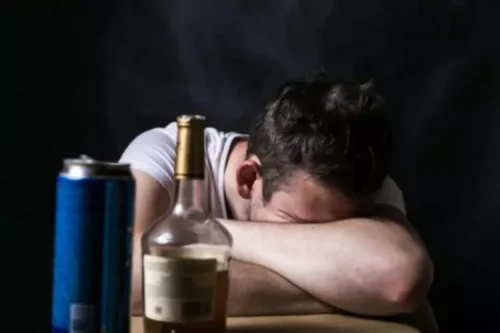
Self-care feels like a chore, and as a result, your emotional, psychological, and physical health might suffer. Without intervention, the emotional stage can quickly progress into the mental stage. Those in recovery can use the money saved from not buying drugs for countless other activities and events.
Importance of Aftercare

Family, friendship, and support will be crucial during the recovery journey. If your substance use has started to negatively impact your life or you feel like you no longer going back to rehab have control, it is time to seek treatment. Back to the example of the broken leg, aftercare would look like using crutches and going to all your doctor’s appointments.
- This is because of the changes that occur in the body once you stop using substances.
- ” Deciding “I need help with addiction” you can then begin to look for rehab treatment centers.
- On a regular basis, Matt collaborates with Elevate’s President, CEO, COO & Clinical Director to evaluate, plan and monitor program objectives and requirements.
- However, those with more urgent or intense needs often attend rehab because it’s the most intensive form of treatment—compared to outpatient levels of care or therapy sessions every so often.
- This is probably the first time they’re hearing about it and can’t imagine how it could be true.
Going Back To Rehab After A Relapse
Your treatment team will also help you develop an aftercare plan that may include continued therapy, support groups, and regular check-ins with a counselor. If you’ve been using substances again, you may need to go through detoxification. Detox is the process of clearing drugs or alcohol from your system and managing withdrawal symptoms. It’s important to undergo detox in a medical setting where you can receive appropriate care and support. Leslie has been working with families of clients in the program for 9 years.
Personalized Treatment Plans
But the reality is that 18-26% of people who seek treatment for a substance use disorder will eventually readmit to rehab. To promote accountability, it is important to have regular check-ups with a mental health professional. Check-ups can be as infrequent as four times a year and https://ecosoberhouse.com/ involve a medical professional conducting exams to check vital signs. Since individuals have exposed themselves to harmful substance, they can develop side effects such as wounds, breathing and heart problems; sleeping problems; weight loss or weight gain and muscle twitching.

What Are the Different Types of Relapses (Slips, Lapses, and Relapses)?
Public facilities often offer sliding-scale rates for low-income individuals. Some offer luxurious accommodations, while others provide less luxurious surroundings. Call now to connect with a treatment provider and start your recovery journey. Because of this, going back to rehab is often just another one of the steps to lasting recovery. A return to treatment allows those with alcohol addictions to assess their needs and modify goals to meet their present situation. This kind of evaluation and modification can be a recurring and long-term process.
- If you or your loved one have recently relapsed, going back to rehab may be the best option to getting back on the path to sobriety.
- You can start your search for the best treatment for you using Recovery.com.
- However, understanding what the success factors of treatment are can help you better understand relapse as a whole.
Get professional help from an online addiction and mental health counselor from BetterHelp. But if you’re living with addiction, you don’t have to deny yourself the help you deserve just because you’re unsure about what to expect. In fact, there are several things you can do to get ready for rehab to help you mentally and emotionally prepare for treatment and allow you to focus on your recovery while there. If the severity of your substance use has been concealed from them, they may not even be aware of the issue. This is probably the first time they’re hearing about it and can’t imagine how it could be true. You’re probably overreacting.” Take this as an opportunity to be open and honest with them.

Matt is credentialed as CADC-CS (Certified Alcohol & Drug Counselor – Clinical Supervisor) through CCAPP (California Consortium of Addiction Programs and Professionals). He helped create an effective, holistic alcohol & drug treatment curriculum that has been in use at Elevate Addiction Services since 2015. People who are seeking addiction treatment after a relapse have several options to choose from.
- For the past 6 years, she additionally has been overseeing the detox area, health services, and office of family support.
- The first is to determine if your behavior is considered a “slip” or a relapse.
- It is normal and necessary to seek medical interventions to treat conditions that negatively affect your quality of life.
- The services provided, as well as the therapeutic approaches, may not work as effectively for some people compared to others.
Relapse Risk Factors

You don’t need to feel a high sense of motivation every single day, but if you’ve noticed a decline in motivation over time, rehab can help. As long as someone that expensing a relapse recognizes the lapse, taking action, returning to rehab, and adjusting their recovery plan is key and can lead to long-term sobriety. Relapse doesn’t mean the treatment program didn’t work — it simply means the treatment plan needs reinforcement or adjustment. Falling back into old habits is easy, as it’s a common response to cravings, boredom, triggers and doubt.
- For prestigious academic institutions like Cal and Stanford, that could create some problems both on and off the field.
- During intake you will be asked some more questions about your background & medical history.
- If you have tried to stop using drugs or alcohol and have been unsuccessful, this is a sign that you may need rehab or an increased level of rehabilitation services.